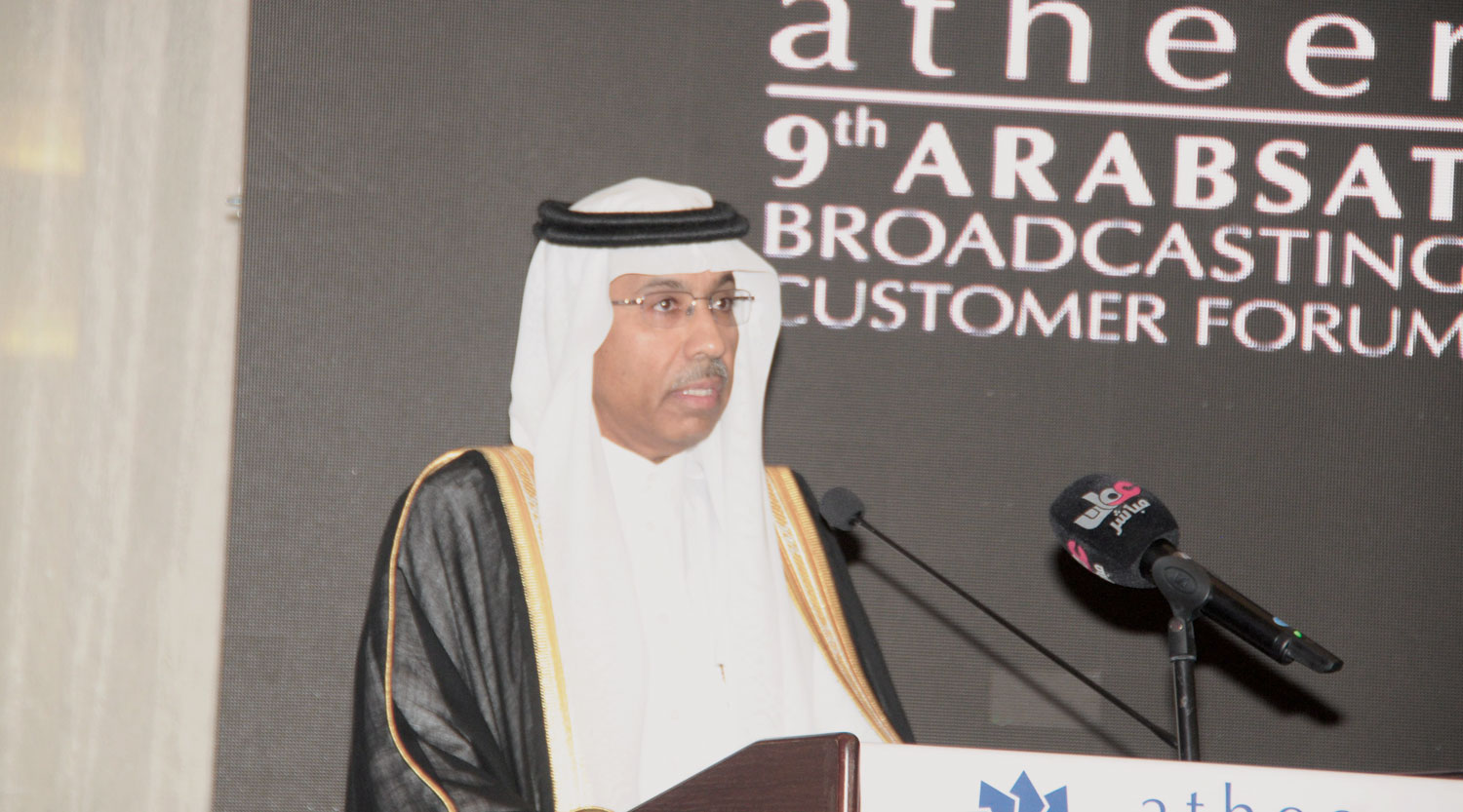

SALALAH, Oct 4 - A coalition of satellite operators is working to put an end to satellite piracy, as leading regional channels are feeling the pinch due to loss of advertising revenues by satellite TV piracy. Khalid Balkheyour, President and CEO of Arabsat, dwelt upon this fact in an exclusive interview with Observer on the sidelines of the 9th Arabsat Broadcasting Customer Forum at Rotana Salalah Resort on Wednesday. He also spoke about priorities of Arabsat, which ranks sixth globally in terms of size.
“There has been piracy not only of content, but many of our customers feel the problem of interference or jamming of signals. We are part of a coalition and addressing the issue as and when it is needed,” he said.
“ArabSat is a member of the anti-piracy group through satellite television broadcasting. We continue to provide the necessary support to the TV networks to combat this phenomenon and control it in cooperation with all the stakeholders. We keep on doing studies and sharing them among the group members. It has very good impact and the problem has been minimised to some extent.”
Balkheyour confirmed the involvement of some international agencies in combating the piracy, which adversely to the revenue of licensed operators in the sector.
Balkheyour called the task of making pace with the latest technologies “quite challenging in the wake of growing competition and pressure of being cost effective… we are doing it with commitment which reflects in our good presence in the Arab world, Europe and Africa.”
“It is a matter of pride for Arabsat that France 24 and the BBC have joined our channel in high-definition broadcasting at 26 degrees East, surpassing the number of high-definition channels on the site at 26 degrees east 165 channels,” he said.
Arab Sat is currently studying the feasibility of a high-capacity broadband satellite project in the Middle East and Africa by adopting new technologies to transport services and coverage from one location to another and by adopting flexible software to allow it on the Moon at 44.5 degrees East.
The efforts exerted to raise the capacity of the infrastructure is in consistent with the results and work studies conducted by ArabSat with its public and private sector partners to study their future requirements and address their current problems in terms of target markets and technologies that reduce costs and take into account current economic conditions.
“One of the new services we have started is the live broadcast of the European coverage of the satellite, the HellasSat-3, which in our opinion is an effective alternative to broadcasting to reach the
Arab communities in that continent at less than half of what is currently paid on the Hot Bird satellite. We will soon broadcast a series of Arabic channels on the site 39 degrees east and address cable and cable re-broadcasting companies by converting the sources of their reception to Arab channels from the new site. I am confident that this new trend would excite everyone,” he said.
Kaushalendra Singh
Oman Observer is now on the WhatsApp channel. Click here



